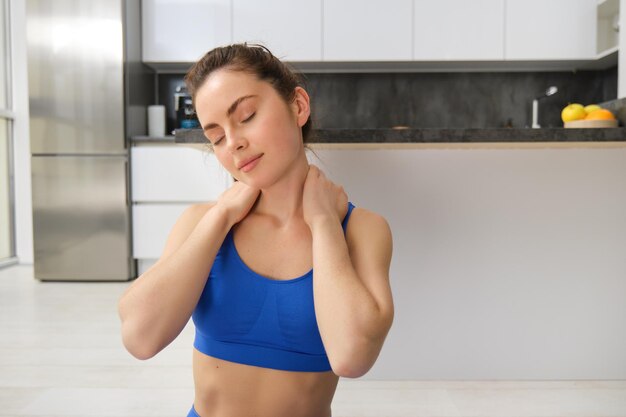Could Anxiety Be Causing Your Shortness of Breath? Here’s What You Need to Know
You’re sitting at your desk or maybe stuck in traffic, and out of nowhere, you notice it: the sudden awareness that your breaths are becoming shallower, and for a moment, it feels almost as if you can’t catch your breath. Before your mind spirals into panic about pulmonary issues or heart problems, take a breath (pun intended). Could anxiety be the culprit?
Shortness of breath is often described as one of the hallmark symptoms of anxiety disorders. For those affected, it can present a genuine fear of something more serious, leaving them feeling trapped in their own bodies. Understanding this connection not only offers reassurance but also empowers individuals to manage their anxiety more effectively. Let’s explore this intriguing link further, along with practical strategies to cope.
Understanding Anxiety and Its Physiological Effects
The Nature of Anxiety
Anxiety, at its core, is a normal human emotion. It is the body’s natural response to stress and perceived threats. While some degree of anxiety can be beneficial, acting as a motivator and protector, it can become problematic when disproportionate to the situation at hand.
Key factors of anxiety:
- Fight or Flight Response: This primal reaction is designed to prepare your body to flee from danger or fight back. When activated, your body releases adrenaline, increasing heart rate, and yes, sometimes causing shortness of breath.
- Anticipatory Anxiety: This involves worrying excessively about future events that may not ever come to pass.
- Generalized Anxiety Disorder (GAD): Continuous and excessive worry about various aspects of life.
Shortness of Breath: A Common Symptom?
Physiologically, anxiety can cause several bodily changes:
- Hyperventilation: Often leads to rapid, shallow breathing.
- Chest Tension: Muscle tension in the chest area can give the sensation of breathlessness.
- Hormonal Effects: Heightened cortisol levels can affect lung function and circulation.
Why Does Anxiety Affect Breathing?
The experience of shortness of breath during an anxiety episode largely boils down to hyperventilation. When anxious, your body believes it needs more oxygen for an imminent “fight or flight” scenario, leading to rapid breathing. Paradoxically, this results in an imbalance of oxygen and carbon dioxide levels in the body, causing dizziness, tingling, and the sensation of breathlessness.
Differentiating Anxiety-Induced Breathlessness from Other Conditions
Is It Really Anxiety?
Before self-diagnosing, consider other potential causes:
- Cardiovascular Issues: Always rule out heart-related causes with a medical professional.
- Asthma or Allergies: Conditions that directly affect breathing should be considered.
- Pneumonia or Lung Infections: These can lead to serious breathlessness not related to anxiety.
Signs it’s anxiety-related:
- Accompanies stress or overwhelming emotions.
- Episodes are transient and often resolve in calmer situations.
- Occurs in sync with other anxiety symptoms such as a racing heart and sweaty palms.
When to Seek Medical Attention
While anxiety can be a cause behind the sensation of not getting enough air, persistent or severe symptoms require medical evaluation to exclude other health conditions. It’s always prudent to err on the side of caution.
Strategies to Manage Anxiety-Induced Shortness of Breath
Breathing Exercises for Quick Relief
Learning to control your breath can interrupt the cycle of anxiety breathing.
Diaphragmatic Breathing:
- Find a comfortable position: Sit or lie down in a relaxed posture.
- Place a hand on your abdomen: Breathe in slowly through your nose, allowing your belly to rise.
- Hold the breath: Pause for a count of three before exhaling slowly through the mouth.
- Repeat: Continue this cycle for several minutes.
Mindfulness and Meditation
Incorporating mindfulness can anchor you to the present, reducing the risk of breathlessness spirals. Mindfulness meditation can help regulate stress responses over time.
Regular Physical Activity
Exercise is an effective strategy in managing anxiety. Activities like walking, yoga, or cycling can reduce stress hormones, improve mood, and stabilize breathing patterns.
Lifestyle Adjustments
- Limit Caffeine: While it might get you through a rough morning, caffeine can exacerbate anxiety.
- Sleep Hygiene: Ensure regular, restful sleep.
- Balanced Diet: Omega-3 fatty acids, magnesium, and Vitamin B-complex can have a calming effect.
Cognitive Behavioral Techniques
Cognitive Behavioral Therapy (CBT) provides tools to challenge and modify unhelpful thought patterns, thus reducing anxiety symptoms like shortness of breath.
When Professional Help is Needed
Sometimes, self-help strategies may not suffice, and professional therapy or medication may be necessary. This doesn’t represent a failure but rather a step towards better health.
Bringing Calm to Your Breaths
It’s vital to understand that feeling breathless doesn’t always mean there’s something wrong with your heart or lungs. Sometimes, your body may just be responding to stress or anxiety. This knowledge can act as a buffer against fear-induced escalation.
Key takeaways:
- Anxiety can manifest physically, causing shortness of breath.
- Awareness and specific breathing techniques can provide immediate relief.
- Differentiating between anxiety symptoms and other potential health issues is essential.
- Seek supportive strategies, including lifestyle changes, exercise, and possibly professional help.
Ultimately, learning to manage anxiety effectively can lead to a profound improvement in quality of life. Drawing the line from anxiety to breathlessness allows for a broader understanding that can break the cycle of fear and symptom intensification.
Quick Summary: Breathing Easy with the Right Tools 🧘♂️
- Understand Anxiety: Recognize its physical effects, like hyperventilation.
- Breathing Techniques: Practice diaphragmatic breathing to regain control.
- Lifestyle Changes: Embrace regular exercise, mindful eating, and sleep hygiene.
- When in Doubt: Consult healthcare professionals if symptoms persist.
By facing anxiety head-on, with proper knowledge and techniques, the battle with breathlessness can become a thing of the past. Let your next breath be a reminder of calm and control, not of fear. 🍃

